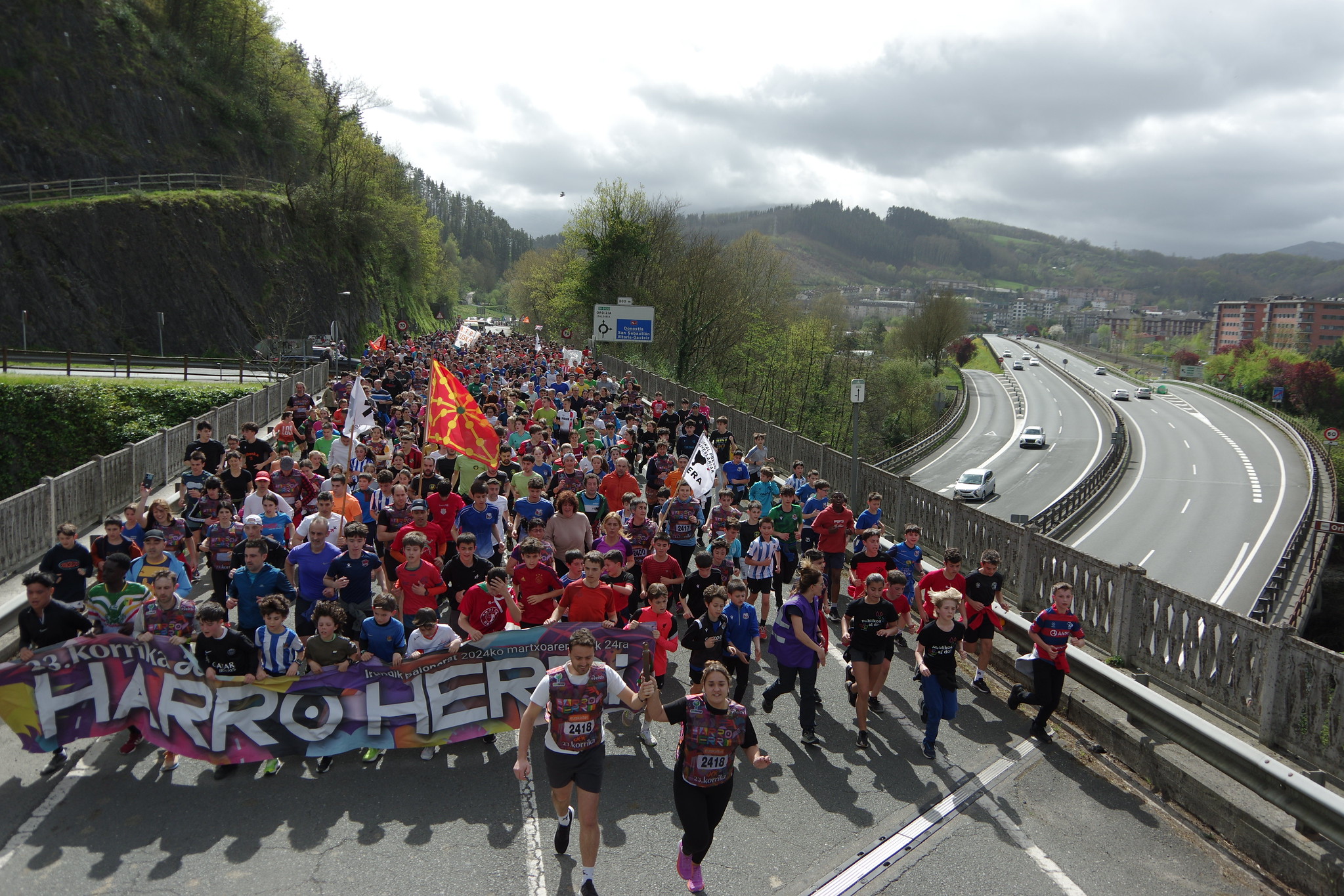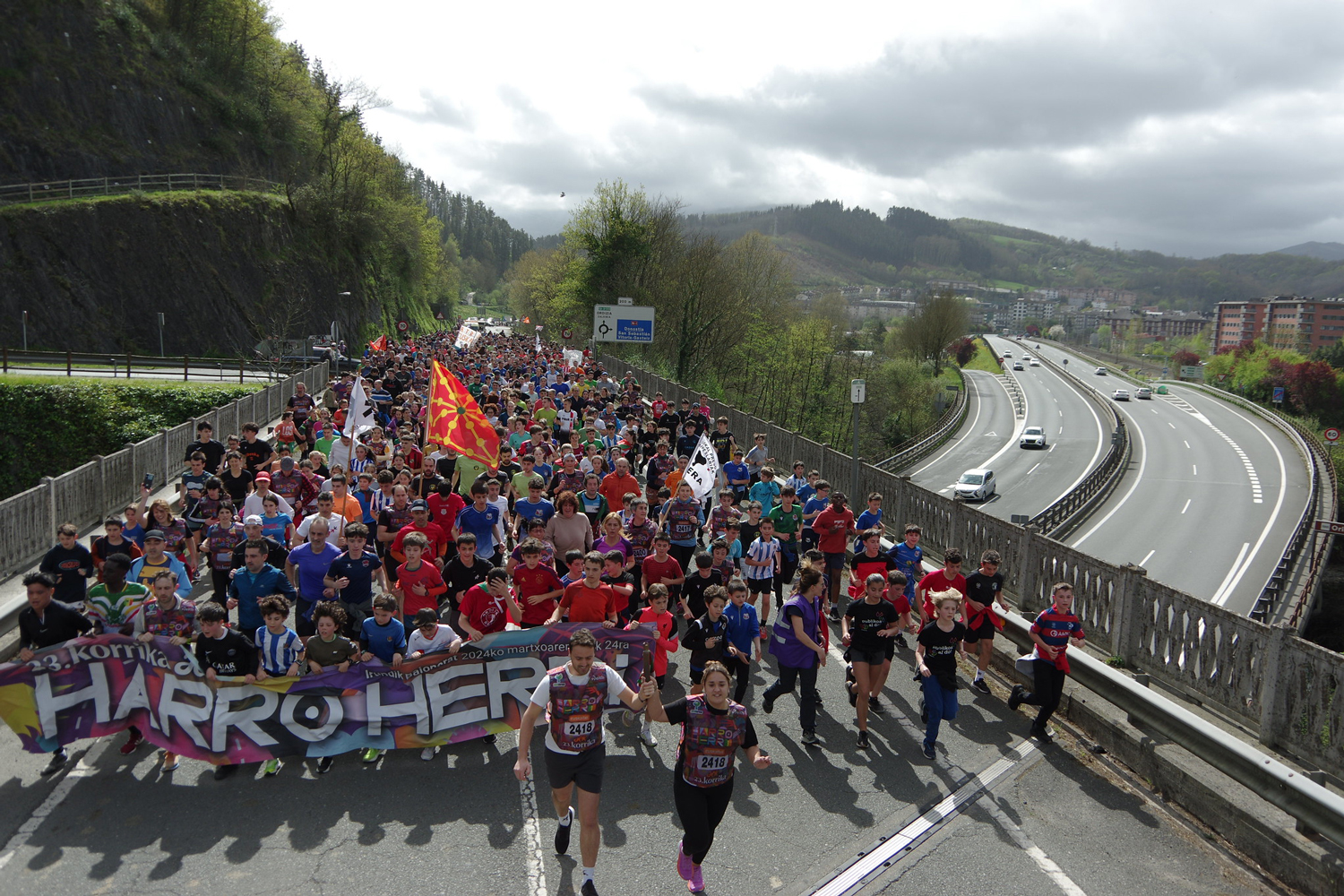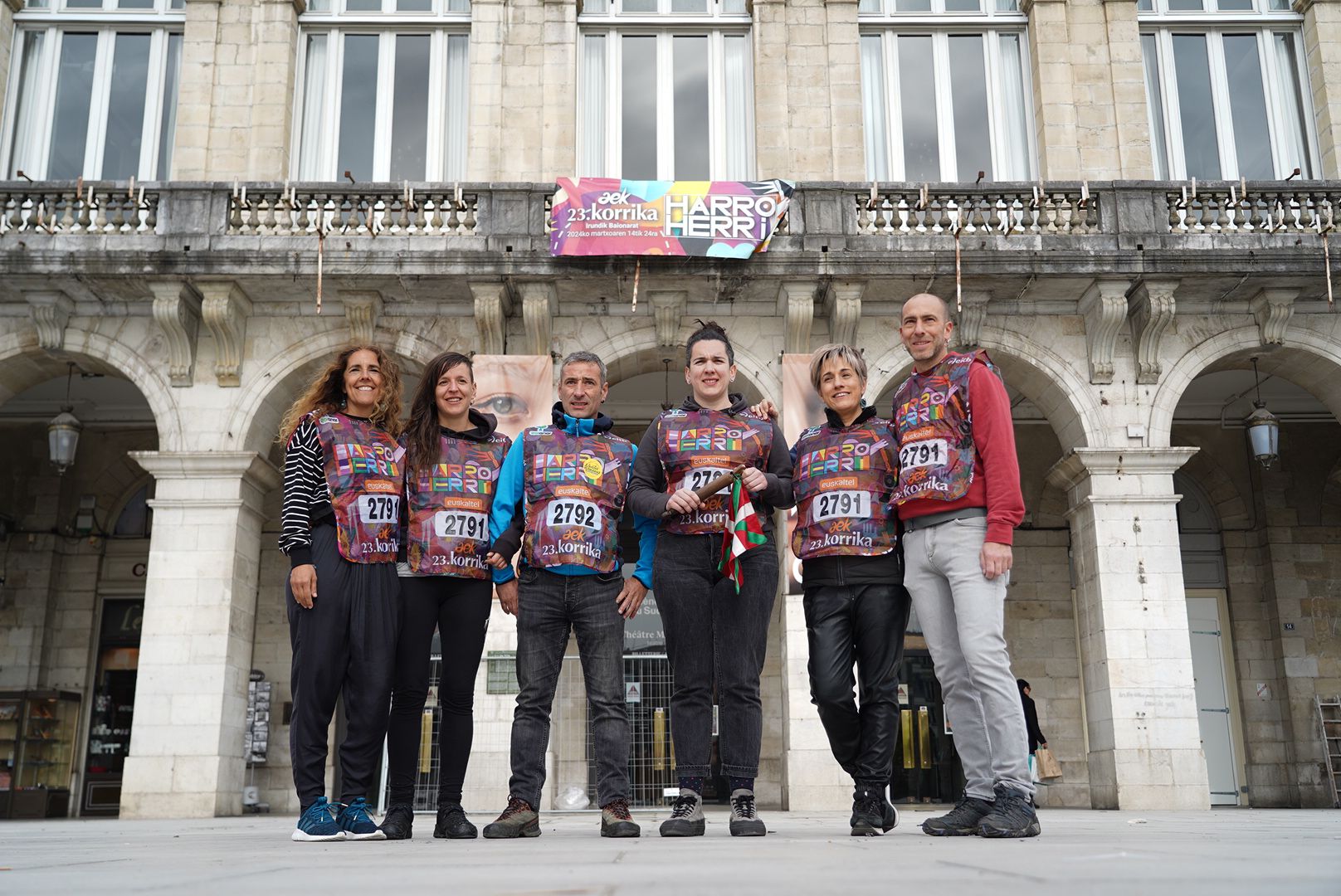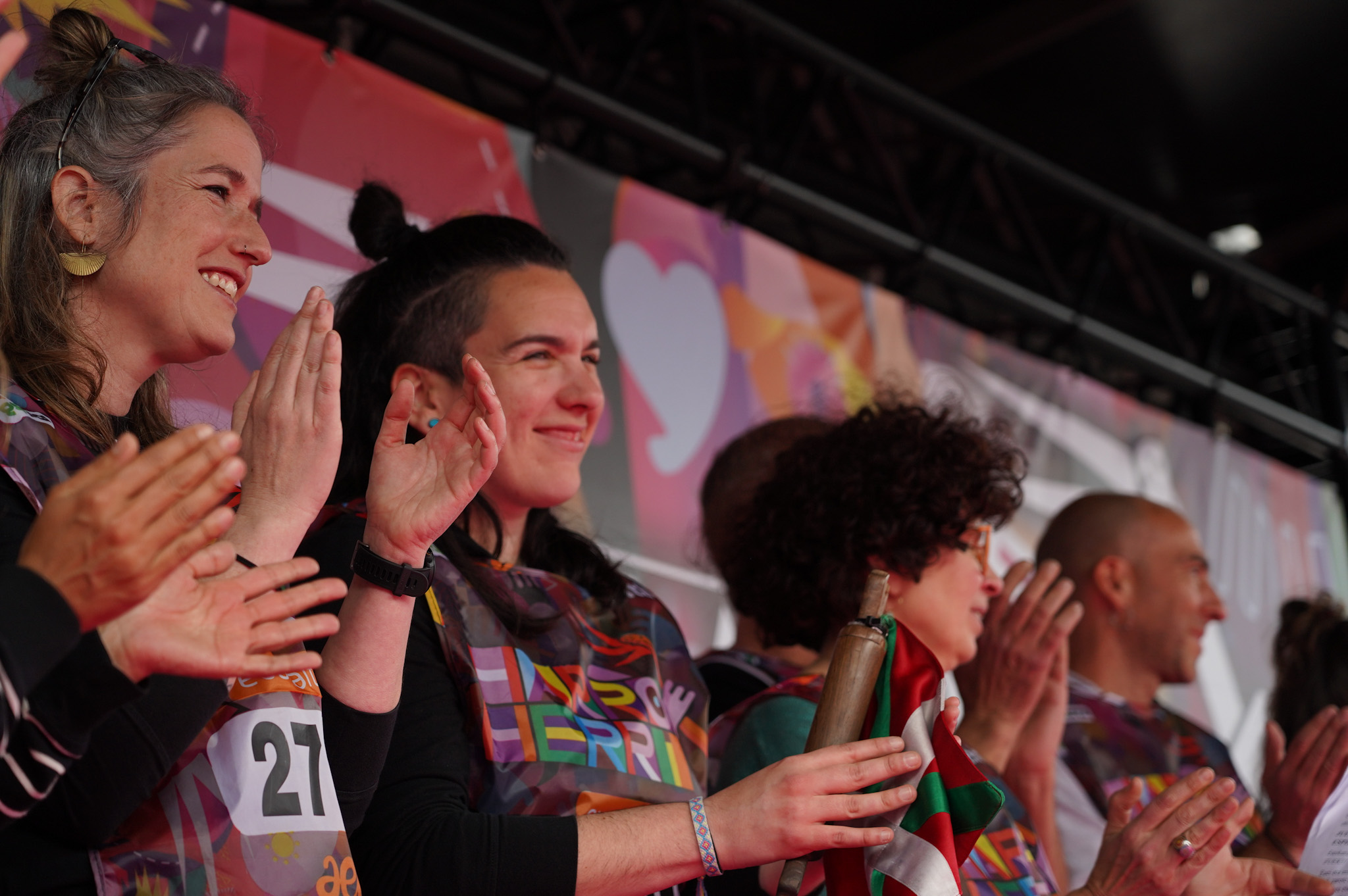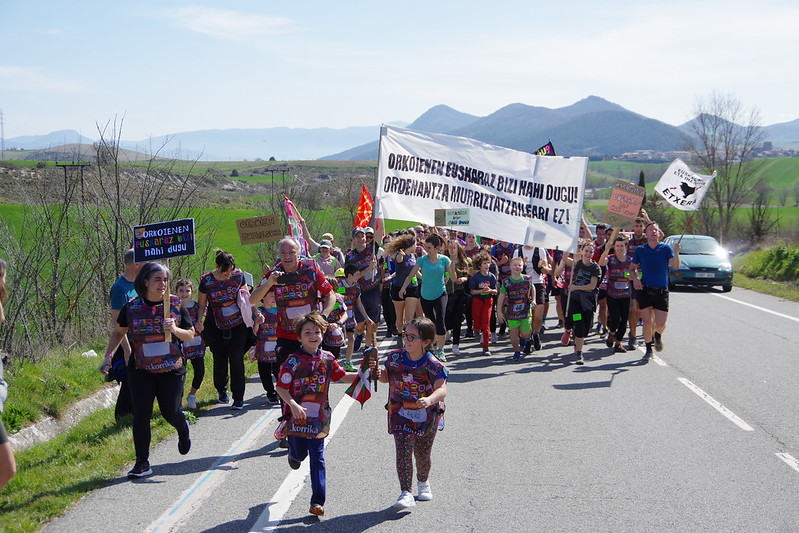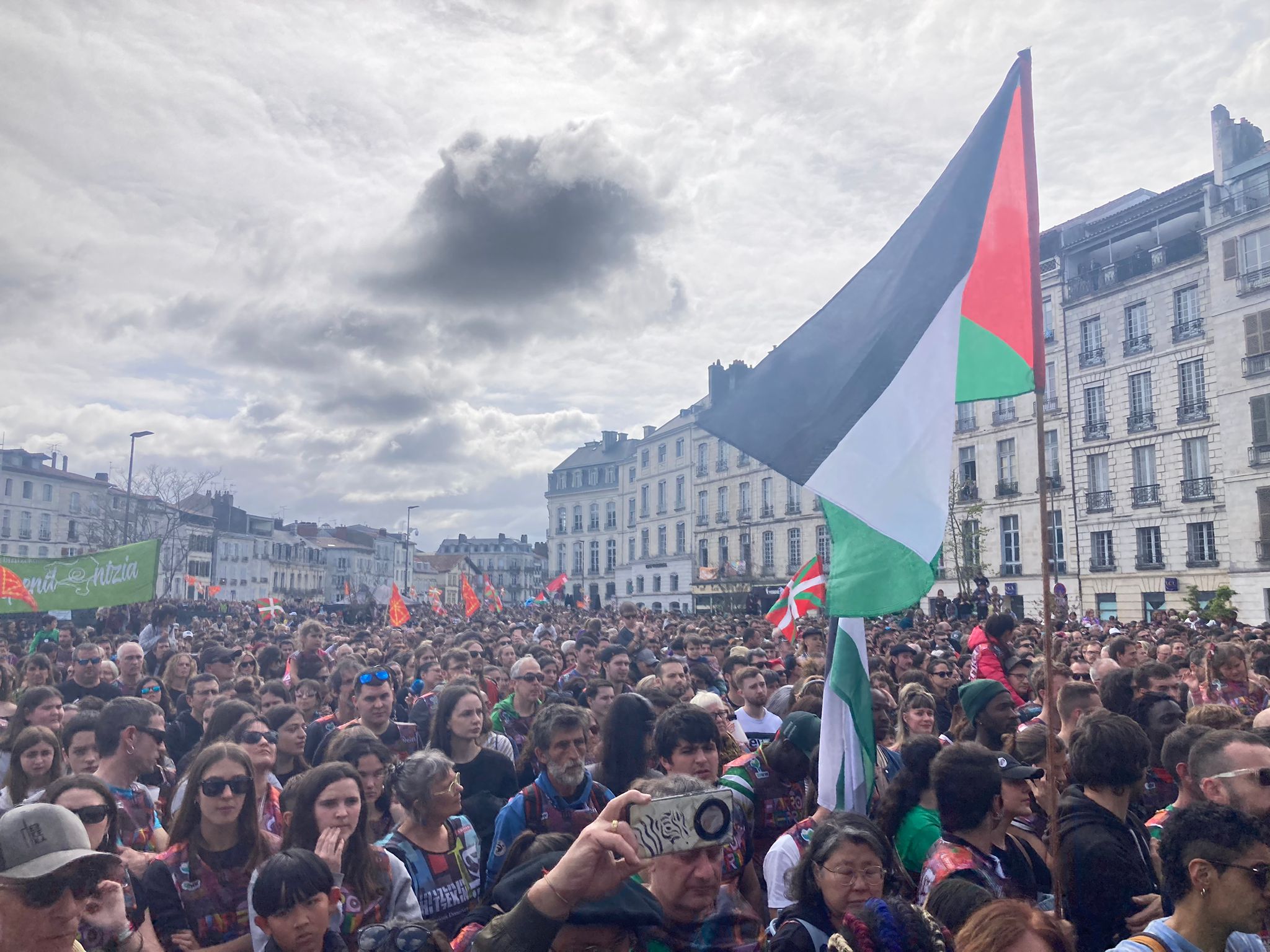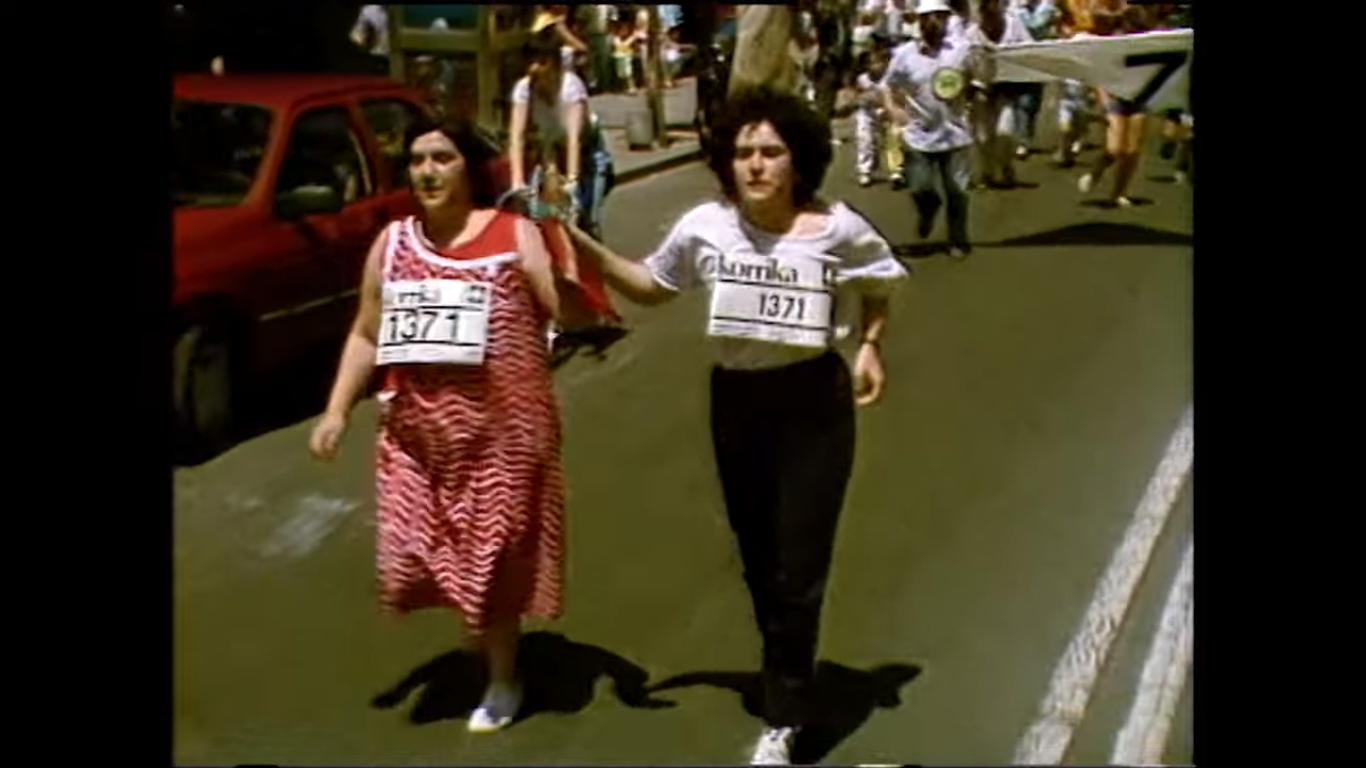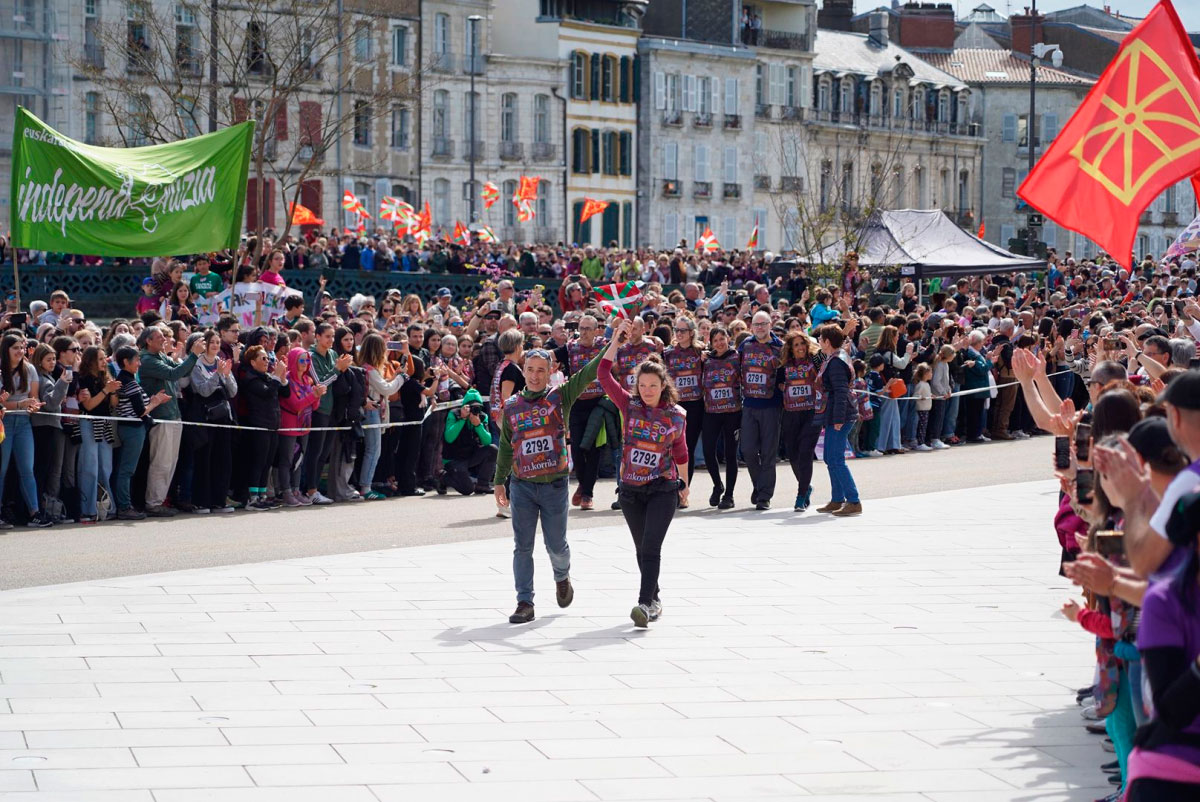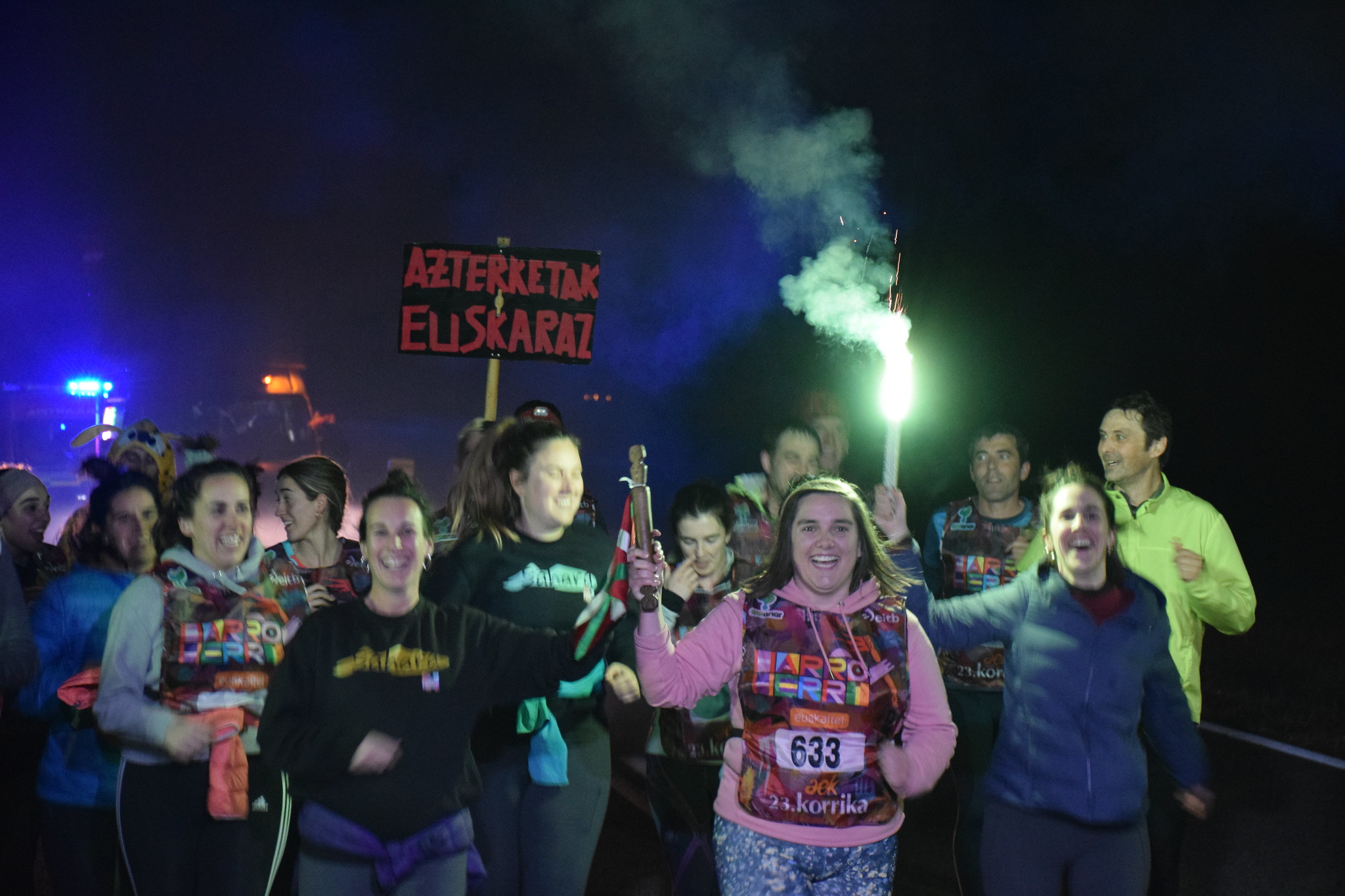Korrika starts Saturday in Lokizaldea
- The Iturriaga environment has crossed the Korrika Txiki within Lokizaldea Basque Day. For years, the day was celebrated to buy the kilometres of the Korrika in the non-Basque area. They have enjoyed the program all day in a festive atmosphere.
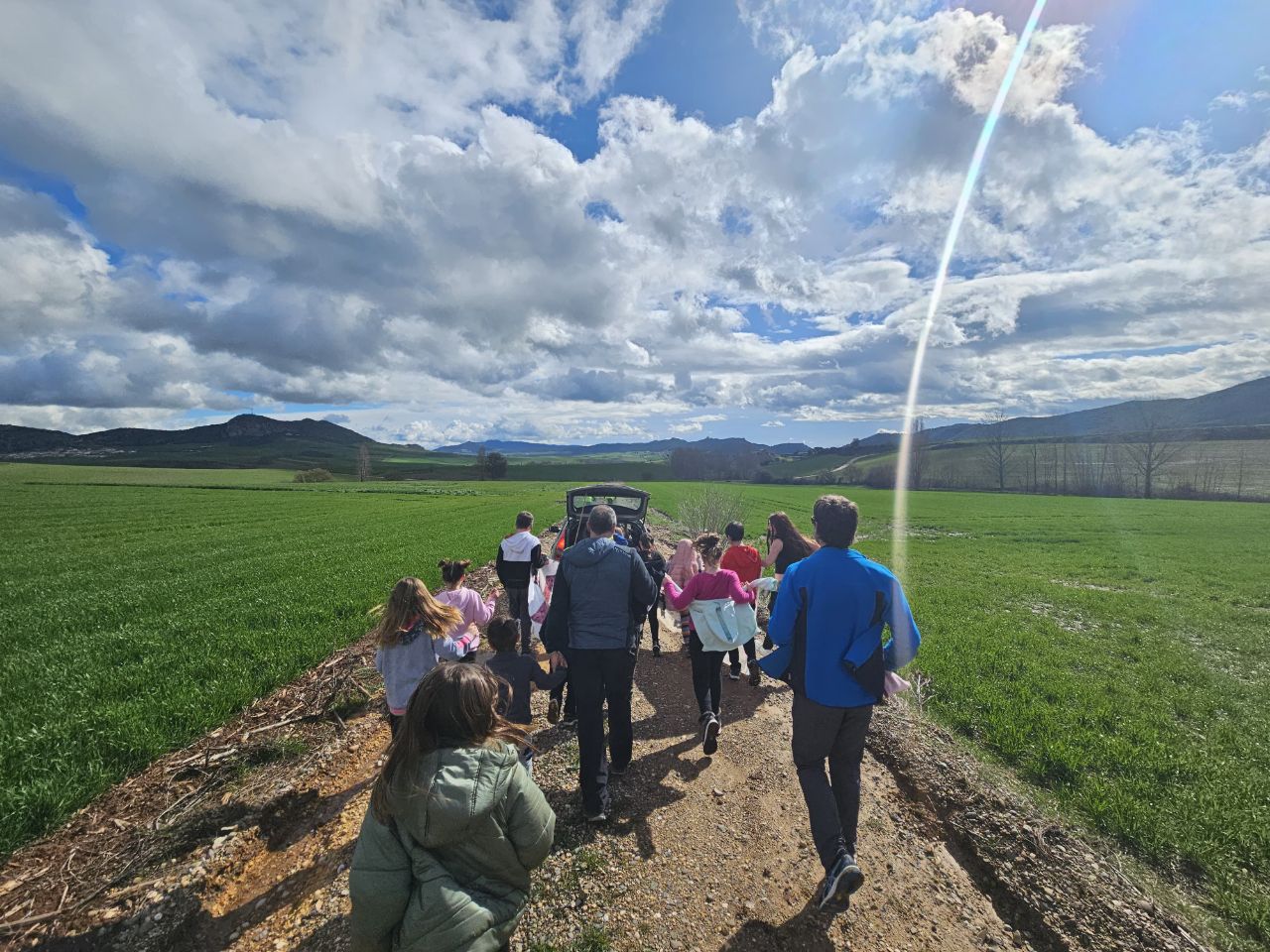
Euskararen Eguna started at 11 a.m. in Iturriaga-Mirafuentes with the Korrika Txikia. Dozens of children have crossed the streets and the village environment, accompanied by adults, and in short the ups and downs that cover the whole of Euskal Herria from the car speaker that has opened the march have been heard: “Ika, ika, ika, hemen dator Korrika”, “Here we are, by the Basque!”, “In Iturriaga!” Thereafter, activities have not been interrupted until night.
At 12 noon, rural sports accompanied by athletes from the teams of Chantrea and Berriozar have been organized in the town square. After the spectacle, the peoples are disputed. By then the children already enjoyed the inflatables, and the agents, craftsmen and producers of the region served to hang the citizenship. From 15:00 onwards, about 170 people have enjoyed a dirty meal that has begun to prepare since the morning in the Gaztetxe, followed by a children's chocolatada. Music heats the evening and night. The Counterparts Brothers Brass Band started their activity in the plaza and ended at the Gaztetxe. Next, the La Jodedera group takes the witness and DJ Txato and Faco end the night putting music with vinyls.
Euskera and Korrika initiative
The Lokizaldea Euskaraz group began organizing Lokizaldea's Basque Day when "the situation of the Basque Country was more difficult years ago". This is explained to us by Jone Lozano Miranda, who met two years ago. It consists of six joint valleys: Amezkoa, Allin, Metauten, Egaibar, Lana and Berrotza. Next to them is the town of Igúzquiza. When Basque Day began to be organized, all the valleys were located in the non-Basque area and the aim was to raise money in a popular way to buy the kilometres of the Korrika. Every year a valley takes the day, this year Berrotzak, but with the participation of the neighbours of Lokizalde
Since then the situation has improved somewhat, according to Lozano. Vasquism is stronger, some of the valleys have moved to the mixed area, and unlike what happened before, many municipalities purchase the kilometres of the Korrika. For this reason, in Lokizaldea Euskaraz, thought has also been given to allocating the money raised this year to other activities in favor of the Basque Country, “for example, organizing a concert or a theater every four months”.
The members of Lokizaldea Euskaraz relate Euskera with other struggles, they want to transform the region from bottom to left: "As a thread, on 8 March, women's day*, has given the witness to Euskera Day. Linking one end of this system to another: oppression towards women, with minority languages, in the depopulated region. We want to build the future from the edge, pulling the road to neighborhood work," the invitation to citizenship was marked by messages.
Among the organizers and the citizens felt very satisfied with the atmosphere created on Saturday in Iturriaga, tired but renovated to organize the appointment next year. They are now eager to reach the official career.
Then, gallery of photos given by the citizenship:
.jpg)
.jpg)

(Photos: Aiheko Zubimendi)




(Next photos: Josi)






.jpg)
.jpg)


We Basques move our feet behind the witness of Korrika to proclaim that we want to survive as a Basque people in favor of our language, with the aim of the Basque Country we desire.
The tipi-tapa is the first step taken by a migrant person who leaves his homeland in Africa,... [+]
Not more than a year living in Vitoria when I first saw Korrika. It was daylight, I was carrying my daughter in a backpack, and a bunch of speakers around me, and among those friends, Rosa, who is still beside me. About her daughter, what to say, is almost 14 years old, and in... [+]
For eleven days, from 14 to 24 March, the corners of Euskal Herria will run 23 March. Running. Photographs sent by AEK are being collected in this gallery.








.jpg)


